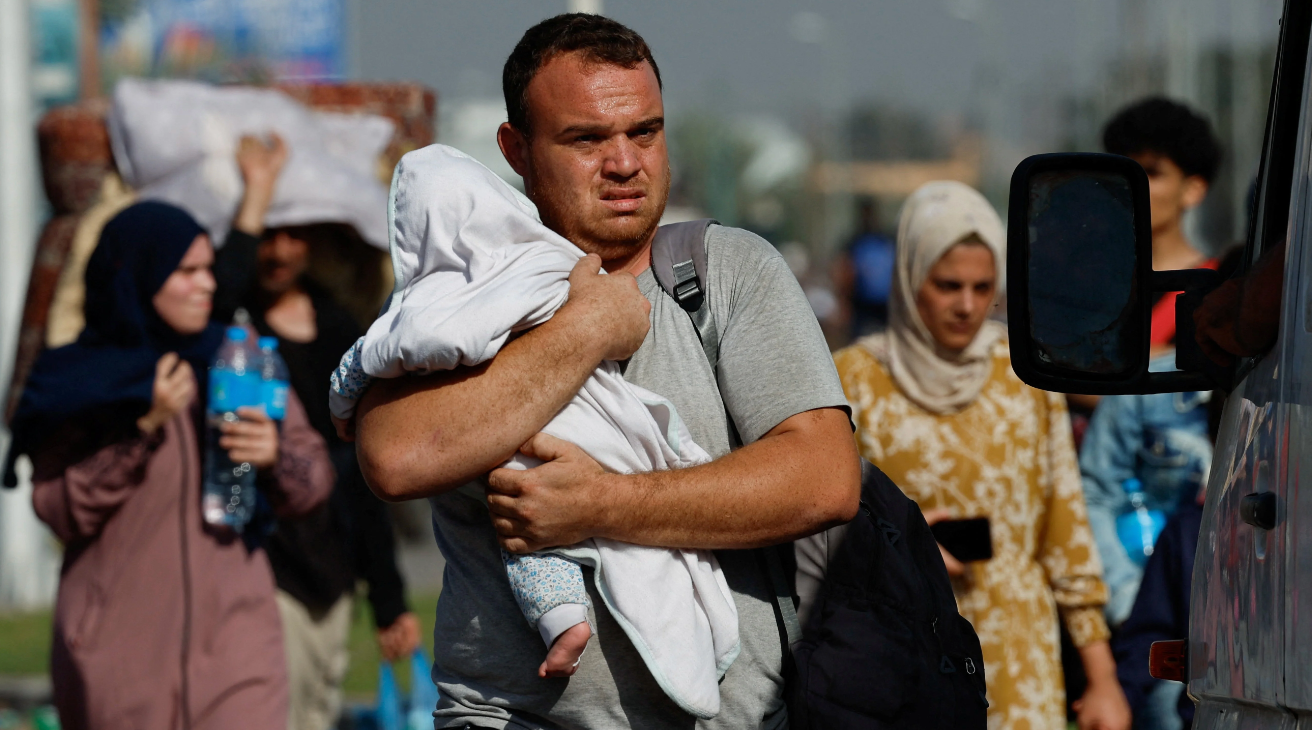Israel has agreed to daily four-hour pauses in the fighting in northern Gaza to allow civilians to evacuate to the southern part of the territory, National Security Council spokesperson John Kirby announced Thursday.
Kirby lauded the move as a “step in the right direction.” But President Joe Biden also conceded to reporters that it’s taken "a little longer than I hoped" for Israeli Prime Minister Benjamin Netanyahu to agree to the White House’s requests.
Biden said he’d urged Israel to consider a three-day pause and “asked for even a longer pause” to allow time to help get hostages taken by Hamas out of Gaza. The agreement for the four-hour pauses is seemingly a compromise.
The Israeli government continues to fiercely oppose a ceasefire, and Biden doesn’t think that will change anytime soon. Netanyahu in late October said that calls for a “ceasefire are calls for Israel to surrender to Hamas, to surrender to terrorism.”
Instead of endorsing a ceasefire, which the UN has pushed for, the US and a number of its allies have requested short pauses in the war. At home, Biden’s approach to the conflict has put him at odds with a number of progressive Democratic lawmakers who have explicitly called for a ceasefire.
The takeaway: Biden has generally offered unequivocal support for his Israeli counterpart since the Hamas attack on Oct. 7 but now appears to be growing somewhat impatient with Bibi. It’s evident that the US is ratcheting up pressure on Israel to take more steps to protect Palestinian civilians as the fight continues and the death toll rises.
